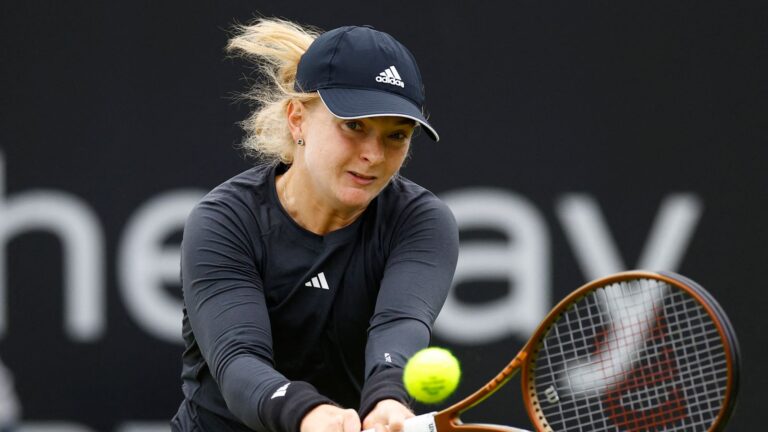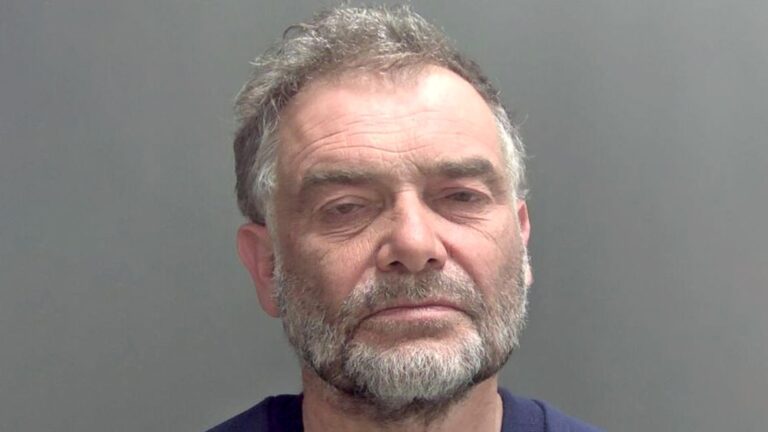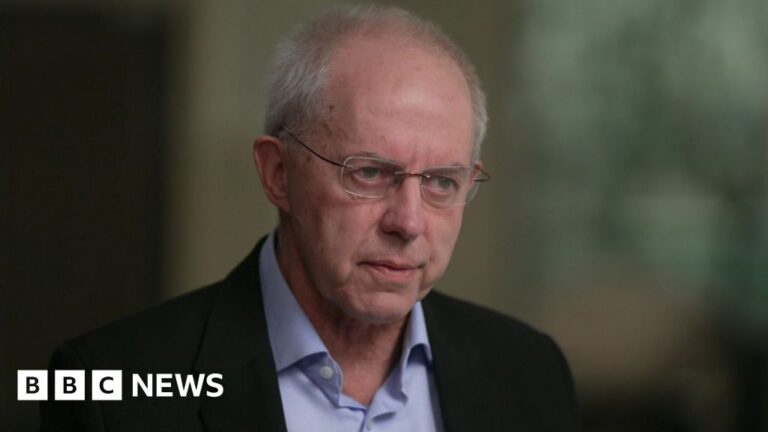

For those who’re on modest means, the cost of the licence fee going up by £5 on 1 April of all days is a bit of a bad joke.
Certainly, for residents at St Crispin Retirement Village, it’s hard to see the funny side.
Among them is 83-year-old Stan Fritton who, since last November, has been embroiled in a battle over how much he and his neighbours should be paying for the BBC.
Their accommodation coming under one roof, they previously paid £7.50 each, qualifying for an accommodation for residential care (ARC) licence.
They then turned a former storage room into one of two spaces for visitors to stay the night and were told by post they’d contravened the TV Licensing Act.
Letters demanding residents pay full price started turning up addressed to almost 100 of the residents.
 Image: Stan Fritton, 83
Image: Stan Fritton, 83
As Mr Fritton puts it they were “being sent to 95-year-old widows [who are] seeing something that says investigation with a big stamp and what have you… it’s frightened them to death.”
He says demands for payments have even been sent to those with dementia.
“They’re not listening and they’re choosing not to listen,” he says of interactions with TV Licensing.

While Mr Fritton says the retirement village’s managers have now shut the room and will be reapplying to get the licence back, he is adamant they haven’t broken any rules but can’t get an officer to come out to see that the room isn’t a dwelling.
Resignedly his main frustration is that: “They’re choosing to antagonise residents here needlessly.”
In a statement, a spokesperson for TV Licensing said they “continue to liaise with the managers of St Crispin’s… and hope to have this matter resolved as soon as possible.”
Price rises to £174.50
How the BBC collects its money is an issue that extends way beyond one retirement village.
Under the current BBC charter, prices will now rise for the next two years based on inflation. It was £169.50, from today it is now £174.50.
Of course, maybe that’s OK if we’re getting more of what the BBC does best but the corporation’s income is down £1bn a year in real terms compared to its funding in 2010.
Wolf Hall director Peter Kosminsky recently gave a written statement to parliament on how the second series of his acclaimed drama was very nearly canned because the financing in public service broadcasting is “insufficient to make high-end TV drama”.
 Image: The producer of Mr Bates Vs The Post Office, Patrick Spence
Image: The producer of Mr Bates Vs The Post Office, Patrick Spence
‘I think we are in real trouble’
But it’s even a tough time for those public sector broadcasters who rely on advertising – the producer of Mr Bates vs The Post Office, Patrick Spence, telling Sky News he wouldn’t even pitch the drama now in the current commissioning climate.
“I do want to say I think we need to pay the sub postmasters first before we then turn our attention to television – let’s get our priorities right – but yeah I think we are in real trouble – there is a form of British television story telling that is going down if it is not supported.”
While some reports have claimed the government is looking to find a way to put a levy on streaming services, the Department for Culture has previously said they “do not comment on speculation” – not ruling it out.
 Image: Former BBC News controller and government communications director, Sir Craig Oliver
Image: Former BBC News controller and government communications director, Sir Craig Oliver
‘Lots of people are saying it’s a very dated system’
As a former BBC News controller and government communications director, Sir Craig Oliver has seen licence fee negotiations from both sides.
He says: “I think everybody has come to the conclusion, including privately the BBC, that they have to come up with another model.
“I think that there will probably be some element of the licence fee still existing, but it may be that there are subscription models on top of that.
“The problem with all of that, of course, is that the devil is in the detail… how do you make sure that people aren’t hacking in? Lots of people are saying it’s a very dated system.”
This year the BBC says it’s launching its “biggest ever public engagement exercise so audiences can help… shape [the corporation]”.
A BBC spokesperson said: “The public cares about the BBC… We want to continue to reform and evolve and look forward to engaging with government on the next Charter and securing the long-term future of the BBC.”
But with seemingly little or no consensus over how that future might be funded, the only certain thing for now is that it’ll mean households being switched on to licence fee prices going up this year, next year and the one after that.




